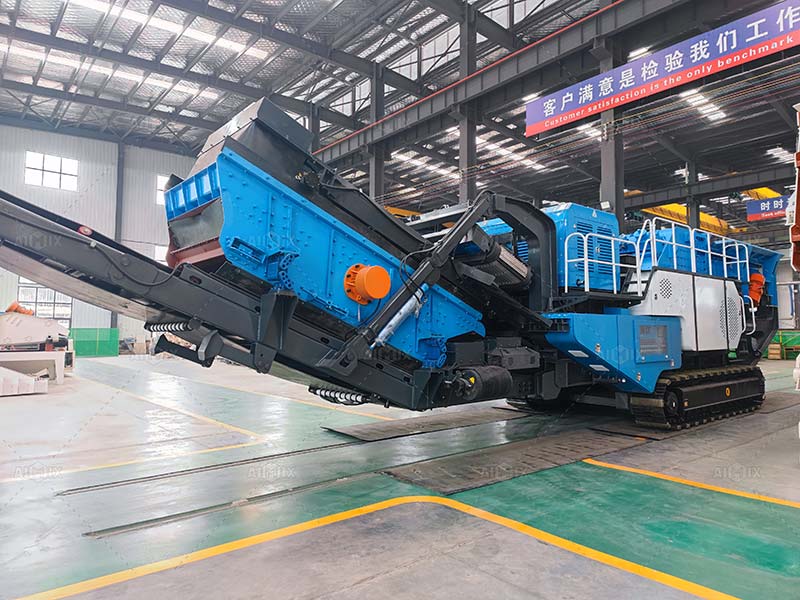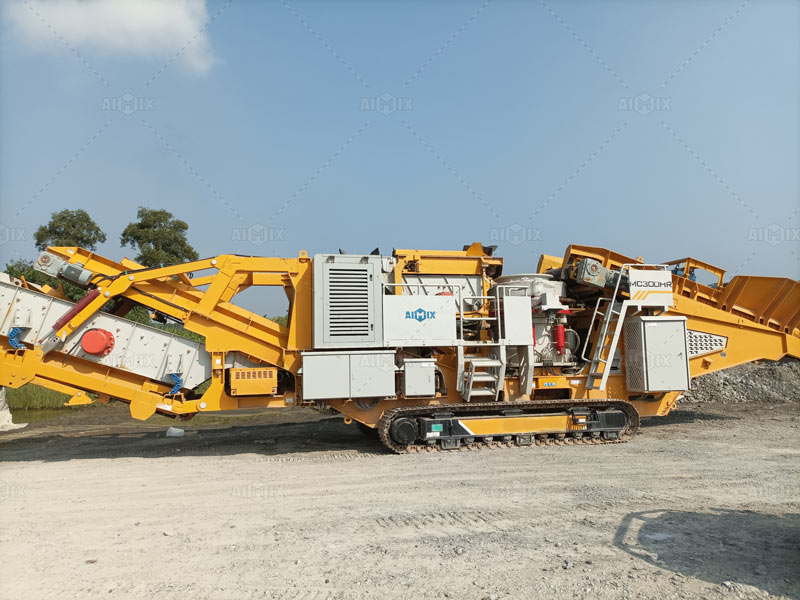In the realm of construction and infrastructure development, rubble crushers play a pivotal role in transforming waste materials into valuable resources. These innovative machines, such as the rubble crusher machine, concrete crusher, and portable stone crusher plant, are revolutionizing the way construction waste is managed and recycled. This article delves into the profound impact of rubble crushers on infrastructure development.

The Role of Rubble Crushers in Recycling Construction Waste
Rubble crushers are ingeniously designed machines capable of efficiently breaking down various types of construction debris, including concrete, bricks, asphalt, and natural stone. By utilizing powerful crushing mechanisms, these machines convert bulky rubble into manageable-sized aggregates, which can be reused in construction projects, thus reducing the demand for virgin materials and minimizing environmental impact.
Environmental Benefits of Rubble Crushers
One of the key benefits of rubble crushers is their ability to recycle and repurpose construction waste, thereby reducing the volume of materials sent to landfills. This not only conserves valuable landfill space but also helps mitigate the environmental consequences associated with waste disposal. Additionally, recycling construction debris through rubble crushers(molino triturador de escombros) promotes a circular economy by reintroducing recycled materials back into the construction supply chain.
Versatility and Mobility
The versatility and mobility of rubble crushers make them invaluable assets on construction sites, particularly in urban areas where space is limited. Portable stone crusher plants equipped with rubble crushers can be easily transported to various job sites, allowing for on-site processing of demolition waste. This eliminates the need for transporting rubble to off-site facilities, reducing transportation costs and carbon emissions associated with hauling debris.

Economic and Productivity Benefits
Furthermore, rubble crushers contribute to the sustainable development of infrastructure by facilitating the reuse of recycled materials in construction projects. Recycled aggregates produced by concrete crushers(trituradora de hormigon) can be used in a wide range of applications, including road construction, building foundations, and landscaping. This not only conserves natural resources but also reduces the environmental footprint of construction activities.
Economic Benefits of Rubble Crushers
The economic benefits of rubble crushers extend beyond environmental sustainability, as they offer cost-effective solutions for construction projects. By recycling construction waste on-site, contractors can save on disposal fees and procurement costs associated with purchasing virgin materials. Moreover, the production of recycled aggregates using rubble crushers of AIMIX Machinery(AIMIX Maquinaria) typically requires less energy and resources compared to manufacturing new materials, resulting in overall cost savings.
Efficiency and Productivity
In addition to their environmental and economic advantages, rubble crushers contribute to the efficiency and productivity of construction operations. With the ability to process rubble directly at the demolition site, rubble crusher machines streamline the debris removal process, accelerating project timelines and minimizing disruptions. This allows contractors to meet deadlines more effectively and deliver projects on schedule.
The Future of Rubble Crushers
As the construction industry continues to prioritize sustainability and resource efficiency, the demand for rubble crushers is expected to grow significantly. Manufacturers are continually innovating and improving rubble crusher technology to enhance performance, durability, and user-friendliness. From compact concrete crushers to advanced portable stone crusher plants(planta trituradora de piedra portátil), these machines are shaping the future of infrastructure development by offering sustainable, cost-effective, and efficient solutions for managing construction waste.
